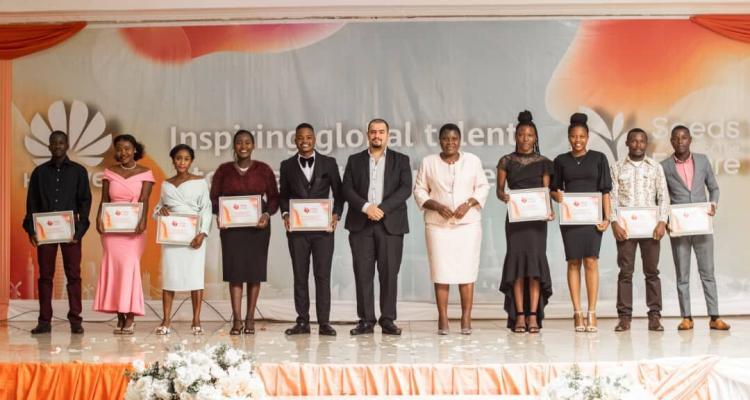
By Kandani Ngwira
Deputy Minister of Education, Monica Chang’anamuno (MP), has challenged ICT students in the country to leverage on the power of technological innovation to provide solutions that could help Malawi to expedite achievement of 2063 goals in key areas of Agriculture, health and digital traded services.
The minister said this in Lilongwe on Friday at the graduation of 100 university students who completed a one week training in ICT under Huawei Technologies corporate social responsibility programme dubbed Seeds of the Future.
“I have been reliably informed that you have just completed a week of developing techonologies for good social impact projects in your communities. I hope that you will expand upon what you have learned to support and accelerate government efforts to leverage the power of ICT to improve wellbeing, to create new sources of wealth, and to accelerate economic diversification.
“As detailed in the Malawi Digital Economy Strategy 2021-2026, we have identified three priority areas in which we believe ICT can have the greatest impact. First, in agriculture, we want to use ICT to increase farmer earning by supporting productivity and commercialization. Second, in health, we want to use ICT to improve health outcomes by ensuring that patients are correctly diagnosed and treated. Third in digital traded services, we want to enable Malawians to deliver services remotely and support both local and foreign business operation,” she said.
One of the students from Malawi University of Business and Applied Sciences (MUBAS) Freedom Msombera said the training, which was under the theme “inspiring the youth shaping the future”, has changed the way they think.
“Previously we were looking at ICT as just a mere subject in school but now we are thinking of it as a tool for providing solutions, accelerating development, entrepreneurship and job creation. As we go out we will try to use the knowledge to bring solutions,” she said.
Huawei ICT trainer Ghassan Nassar said among other things the students were trained in Artificial Intelligence (AI), 5G network, cloud computing, coding and database and how these technologies can be used to bring solutions that can have a big impact on challenges the world is facing.
Seeds of the Future is Huawei’s flagship corporate social responsibility programme. It started in 2016 when they would select 10 students every year to travel to China for ICT training until 2019. In 2020 the programme failed to take place due to Covid 19 travel ban.
But last year the training took place at Golden Peacock where 50 students from eight tertiary institutions received training. This year the number has been doubled to 100 students recruited from 10 different tertiary institutions.
The training started on Monday 14th November and Chinese Ambassador Long Zhou and Minister of Information Gospel Kazako were guests of honour at Crossroads Hotel. Ambassador Zhou pledged continued support towards government efforts to achieve digital transformation which he said is a catalyst to development.
Kazako extended gratitude to Huawei saying they have proved to be a good partner since they started operating in the country for 15 years.
“Let me convey my gratitude to Huawei Technologies for continuing to nurture and develop our 15-year relationship through their constant support in the ICT sector through sponsorship of the ICT Association of Malawi ICT Expo, Sponsorship of the Financial Technology Expo, and through initiatives that empower our young people with critical ICT skills through this flagship programmme, Seeds For The Future Program,” he said.
Kazako also mentioned the key role played by Huawei as an implementing partner for the National Fibre Backbone Project phases 1 and 2 saying through these projects major optic fibre cable were laid
across the whole country granting access to networks and the construction of the National Data Centre.














